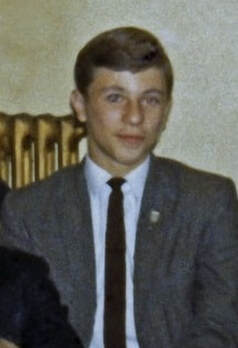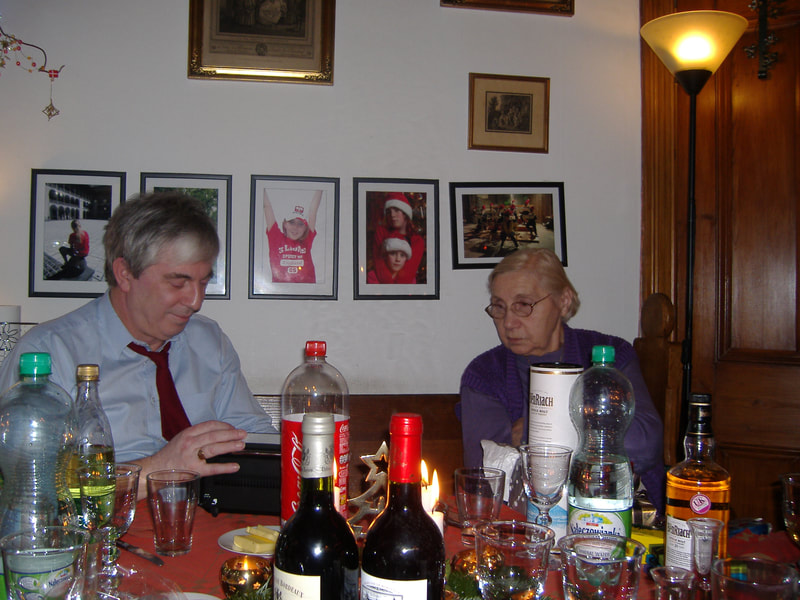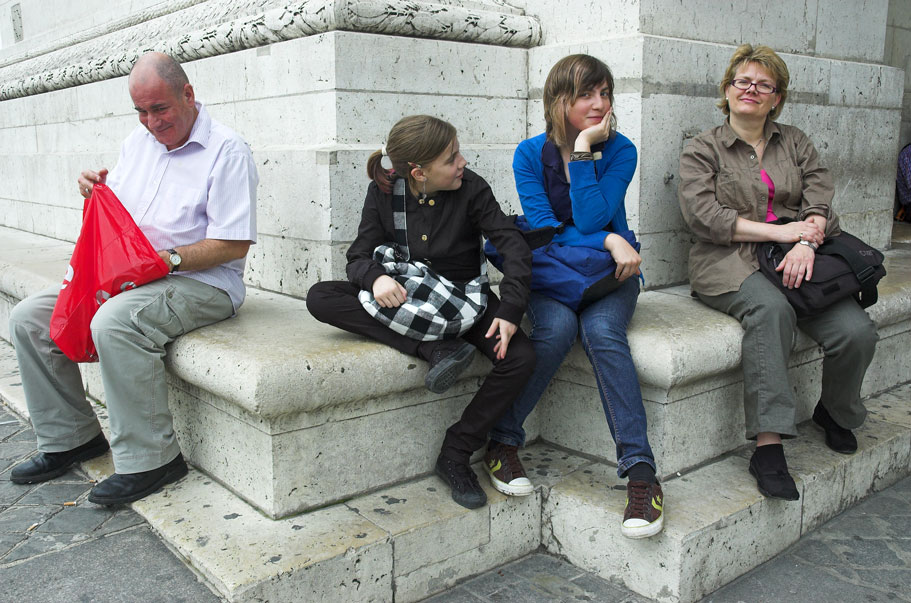
I was going to talk about Les’s kindness, generosity and fidelity as a friend but then I realised everyone knows that already, so I thought it might be more informative to go back to our early years.
Although I’d seen him around, I first met Les properly when I was eleven and we were starting at Saint Aloysius College in Highgate. As Les and I both lived in Stoke Newington it was a long journey to school involving two buses. We were almost the only two at the school from Stoke Newington, apart from his brother Joe and my cousin John Harrington who coincidentally were also friends, though as they were in the sixth form they sat as far as possible from us on the bus.
After a few weeks Les and I became quite chatty, and we discovered a mutual interest in the William stories, as in ‘Just William.’ We spent the bus journey telling each other about the ones we had read and this encouraged us to read more. Les brought to life William, his friends and the whole cast of eccentric adults. Our school was a harsh place in many ways, at least to me, and those journeys on the bus made it that much more bearable in that first year.
We also soon discovered a love of History, both of London and our own area, and of course Les told me all about the History of Poland. This was less than twenty years after the war, so many of the events were still pretty recent. For the Poles especially, but also for many English people, the war was the major reference point. People spoke of Before the War, During the War, and After the War. Those of us who had missed out on the first two felt a little deprived, despite it being impressed on us how lucky we were.
Sometimes at weekends or on bank holidays we would buy a Red Rover ticket to explore London and visit the sights and museums, followed by tea at his house or mine. In this way he became close to my family and I to his.
My family moved to Ipswich later on, but Les and I still saw each other fairly regularly and eventually I moved back to London to work. In all the time since Les has been there, a consistently faithful friend through both happy and sad times. As in those early school days, he helped make the unbearable bearable. As my own family became increasingly depleted he, Lykke and the girls were there, and the Christmases and other celebrations in more recent years have been a joy.
As for so many others, the last year and a half has involved enforced separation, made all the worse by his illness. Yet eighteen months ago Les and I did manage to have one last outing in Central London, the sort we had when we were schoolboys: a trip to the Museum of London followed by an eat-in fish and chip shop near Brick Lane. I did not realise the significance, or that it might be the last time, but in retrospect I think he probably did.
Both of Les's parents had found themselves prisoners of Stalin during the time of the Nazi-Soviet pact and were released in 1941 after Hitler attacked the Soviet Union and Stalin agreed with Churchill to let some of his Polish prisoners go (not that all of them made it out). Both his parents had lost their first spouse by the time they arrived in England just after World War II.
Les's own website has been left up for the time being and contains a wealth of interesting photographs about his family, friends and much else. The name Londynski is a joke of sorts. Londyn is the Polish for London.
http://leslondynski.weebly.com/


 RSS Feed
RSS Feed